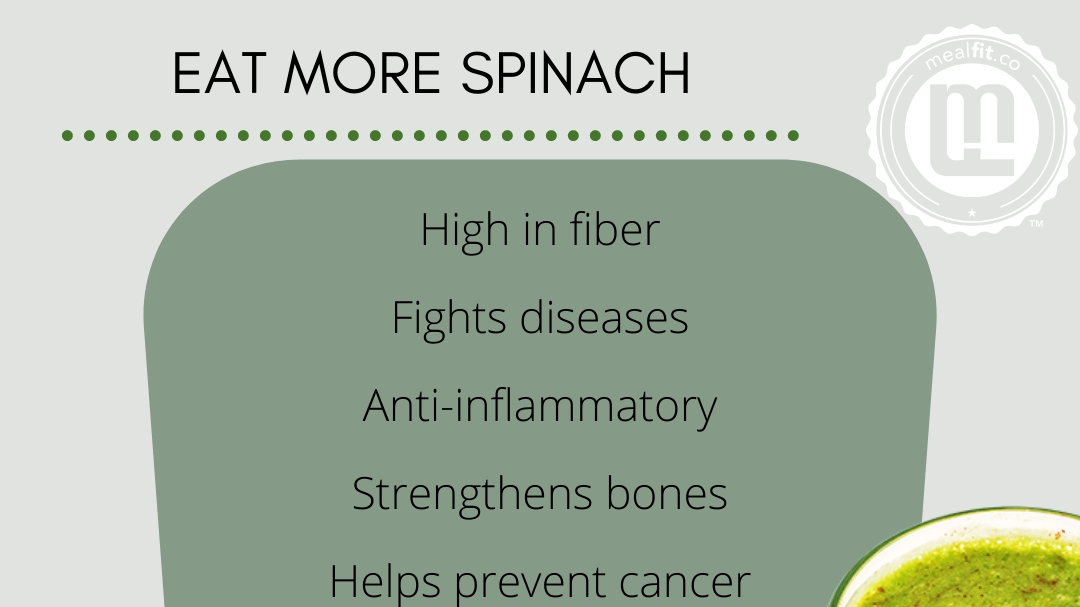
Spinach, often overlooked in favor of more trendy superfoods, is a nutritional powerhouse worthy of the spotlight. Low in calories but high in vitamins, nutrients, and fiber, spinach offers a host of health benefits, making it a versatile addition to any diet. Whether you prefer it fresh in salads, cooked in your favorite dishes, or blended into a smoothie, spinach brings more to the table than just flavor. It’s a superfood that packs a punch, boasting health benefits that extend from your eyes to your bones.
Spinach: A Nutritional Powerhouse
Spinach is loaded with nutrients yet has low calories, making it a smart choice for those looking to maintain a healthy diet. According to a Cleveland Clinic report, spinach contains antioxidants like carotenoids that protect against chronic diseases. It is high in potassium, magnesium, and folate, which can lower blood pressure and protect brain cells. Plus, the insoluble fiber in spinach aids digestion, making it an excellent choice for maintaining gut health.
The leafy green is also rich in non-heme iron, making it a good choice for vegetarians and vegans. It’s also packed with lutein and zeaxanthin, which protect the eyes against sun damage and reduce the risk of eye disorders. For optimal iron absorption, it is recommended to eat spinach with foods high in vitamin C.
Why Spinach is a Superfood
The term ‘superfood’ is often used to denote foods that have a high nutrient content relative to their calorie count. Spinach, according to a Pharmeasy article, fits this bill perfectly. It helps stabilize blood glucose levels, reduce the risk of cancer, and is good for bone health. Spinach is a rich source of essential vitamins and minerals, including vitamins A, C, and K, as well as iron and calcium. It also contains chlorophyll, which promotes digestion.
Furthermore, spinach is linked to numerous health benefits, including cancer prevention, regulating blood sugar, and improving bone health. Due to its high fiber content, it is also beneficial for weight loss and digestion.
Spinach for Overall Well-being
Spinach is more than just a superfood – it’s a versatile ingredient that can be incorporated into a variety of meals. As Healthline suggests, consuming leafy greens like spinach can offer numerous health benefits such as reducing the risk of obesity, heart disease, high blood pressure, and mental decline.
However, like any food, it’s important to consume spinach in moderation and in conjunction with a balanced diet. Individuals with kidney stones or those taking blood-thinning medications should consult their healthcare provider before incorporating spinach into their diet. When storing spinach, keep it at 32 degrees Fahrenheit with a relative humidity of 90–95 percent and it can be kept in the refrigerator for three to five days.
So next time you’re thinking of adding a green to your meal, consider spinach. Its nutritional profile, health benefits, and versatility make it a superfood worthy of being a regular feature on your plate.
